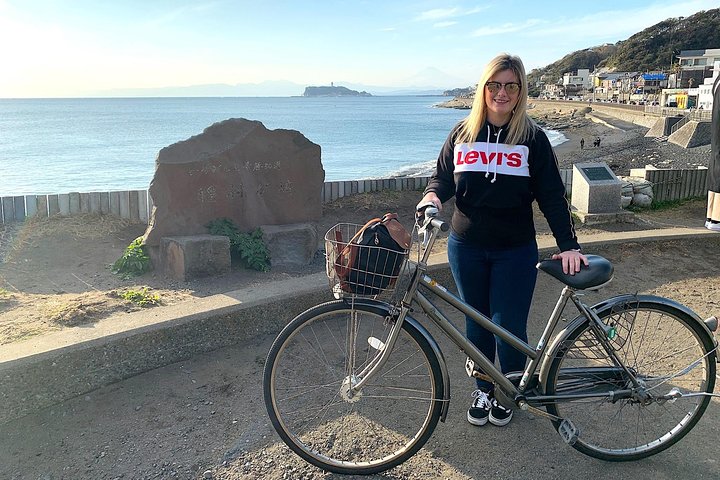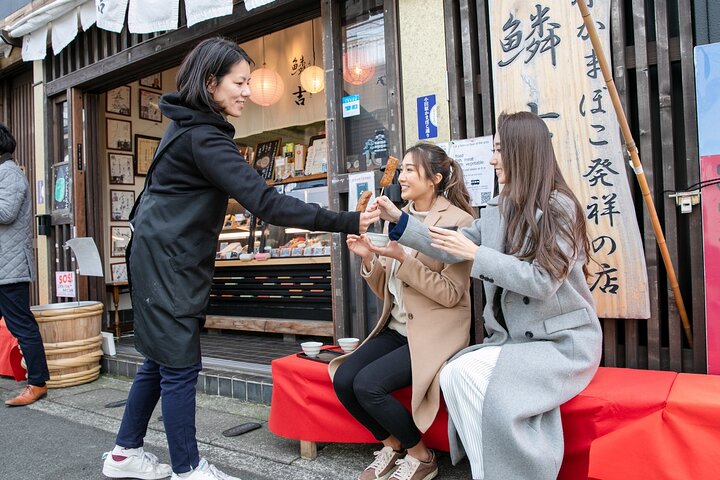
Kanagawa, a picturesque prefecture in Japan, offers a harmonious blend of natural beauty, rich history, and modern attractions. Nestled between the bustling metropolis of Tokyo and the serene landscapes of Mount Fuji, Kanagawa is a treasure trove of experiences waiting to be discovered. One of the highlights of this region is the charming city of Yokohama, where you can explore the city like a local with a passionate guide. Yokohama’s vibrant waterfront, historic buildings, and cosmopolitan atmosphere make it a must-visit destination. For those interested in culinary delights, the local cuisine tour offers a unique opportunity to savor the flavors of Yokohama’s fresh produce and wines.
A short trip from Yokohama brings you to the historic town of Kamakura, known for its ancient temples and the iconic Great Buddha statue. Embark on a walking tour to immerse yourself in the spiritual and cultural heritage of this ancient shogunate capital. If you prefer a more leisurely pace, the rickshaw tour provides a comfortable and traditional way to explore Kamakura’s historical sites.
Nature enthusiasts will find solace in Hakone, a mountainous area renowned for its hot springs and stunning views of Mount Fuji. The one-day tour of Hakone offers a perfect blend of relaxation and adventure, with opportunities to soak in hot springs and enjoy panoramic views of Japan’s iconic peak. For a more immersive experience, the nature walking tour allows you to explore the serene landscapes of Hakone’s national park.
Kanagawa is also home to unique cultural experiences, such as the Japanese tea ceremony workshop, where you can learn the art of Sencha-do and appreciate the intricate rituals of tea preparation. For a touch of modern excitement, the Ramen Museum tour in Yokohama offers a delicious journey through the history and flavors of this beloved Japanese dish.
Whether you’re a history buff, a nature lover, or a foodie, Kanagawa has something to offer every traveler. Its blend of traditional and contemporary attractions ensures a memorable and enriching experience for all who visit.
Kanagawa, a picturesque prefecture in Japan, offers a harmonious blend of natural beauty, rich history, and modern attractions. Nestled between the bustling metropolis of Tokyo and the serene landscapes of Mount Fuji, Kanagawa is a treasure trove of experiences waiting to be discovered. One of the highlights of this region is the charming city of Yokohama, where you can explore the city like a local with a passionate guide. Yokohama’s vibrant waterfront, historic buildings, and cosmopolitan atmosphere make it a must-visit destination. For those interested in culinary delights, the local cuisine tour offers a unique opportunity to savor the flavors of Yokohama’s fresh produce and wines.
A short trip from Yokohama brings you to the historic town of Kamakura, known for its ancient temples and the iconic Great Buddha statue. Embark on a walking tour to immerse yourself in the spiritual and cultural heritage of this ancient shogunate capital. If you prefer a more leisurely pace, the rickshaw tour provides a comfortable and traditional way to explore Kamakura’s historical sites.
Nature enthusiasts will find solace in Hakone, a mountainous area renowned for its hot springs and stunning views of Mount Fuji. The one-day tour of Hakone offers a perfect blend of relaxation and adventure, with opportunities to soak in hot springs and enjoy panoramic views of Japan’s iconic peak. For a more immersive experience, the nature walking tour allows you to explore the serene landscapes of Hakone’s national park.
Kanagawa is also home to unique cultural experiences, such as the Japanese tea ceremony workshop, where you can learn the art of Sencha-do and appreciate the intricate rituals of tea preparation. For a touch of modern excitement, the Ramen Museum tour in Yokohama offers a delicious journey through the history and flavors of this beloved Japanese dish.
Whether you’re a history buff, a nature lover, or a foodie, Kanagawa has something to offer every traveler. Its blend of traditional and contemporary attractions ensures a memorable and enriching experience for all who visit.


































































































